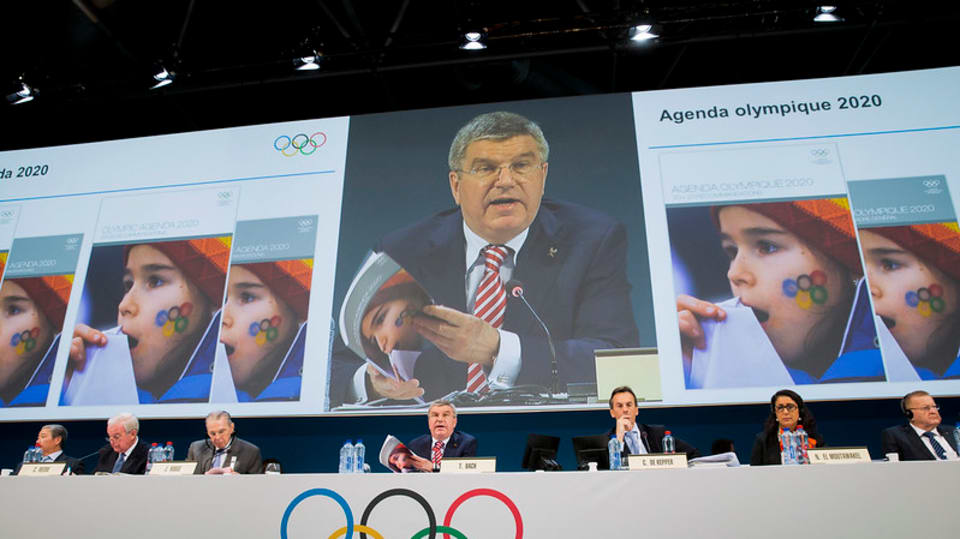The history of the process to elect Olympic Hosts

The approach to electing Olympic hosts has been reshaped in recent years, starting in 2014 with Olympic Agenda 2020 and a new philosophy that invited potential hosts to present projects that best fit their sporting, economic, social, environmental and planning needs, rather than trying to fit the local context to the Games.
The goal was to create Olympic projects that are less expensive and more efficient, with more lasting benefits for host communities and in line with long-term social and economic development plans.
Further changes followed with the New Norm, to create flexible and collaborative partnerships between potential hosts and the IOC through non-committal dialogue and knowledge-sharing.
This meant that during the election for the Olympic Winter Games 2026, candidature budgets were 80 per cent lower than in the recent past, with projected Games organisation budgets also significantly reduced. Ninety-three per cent of the venues to be used at Milano Cortina 2026 will be existing or temporary.
A Working Group was formed to continue to develop the election process. A new approach to electing Olympic hosts was approved at the 134th IOC Session in June 2019.
After that, two Future Host Commissions (for the Games of the Olympiad and the Olympic Winter Games) were appointed by the IOC President. Both are gender balanced and represent a full range of Olympic stakeholders, including athletes, International Federations, National Olympic Committees and the International Paralympic Committee. The Commissions comprise IOC Members who are not on the Executive Board to ensure that the IOC Session has even more influence by being involved from the very beginning of the dialogue.
New approach to electing hosts
The new approach is tailored to suit the needs of all potential hosts, at any stage of development of their project. The IOC works in partnership with cities, regions and countries to design a Games plan and vision driven by the principles of sustainability and legacy. This means that hosts are more able to deliver Games that fit their specific context and ambitions.
The approach had a strong influence on the election of Gangwon as host of the Winter Youth Olympic Games 2024 and on the election of Milano Cortina as host of the Olympic Winter Games 2026.
It was fully put into practice in 2021 when Brisbane 2032 became the first host elected under the new system.
The election process was reformed to address the challenges of the past:
- High expenditure by bidding cities which led to high expectations – but only one winner
- Reputational risks for the Olympic Movement
- “Losing” cities were discouraged from bidding again.
The new approach reflects the new priorities of the Olympic Movement:
- Flexibility and contextualisation
- Aligning Olympic projects with long-term social and economic development plans
- Keeping pace with a fast-changing world
- Being able to react quickly to developments and opportunities
- Sustainability and legacy at the heart of all projects, to meet community needs.
“The Games adapt to the city/region – the city/region does not adapt to the Games.”
- No financial or legal commitment on either side in the early stages of discussions
- Sustainability and legacy are key drivers
- Cost efficiency for potential hosts
- Potential hosts can test ideas without commitment through Continuous Dialogue
- No permanent construction required for the Games
- A pool of potential hosts for the future
- Increased opportunities to create economic, environmental and social/health benefits for communities
Recently elected hosts have reported spending significantly less than previous candidates. To reduce hosts’ costs and limit the use of public money, the IOC provides expertise to potential future hosts.